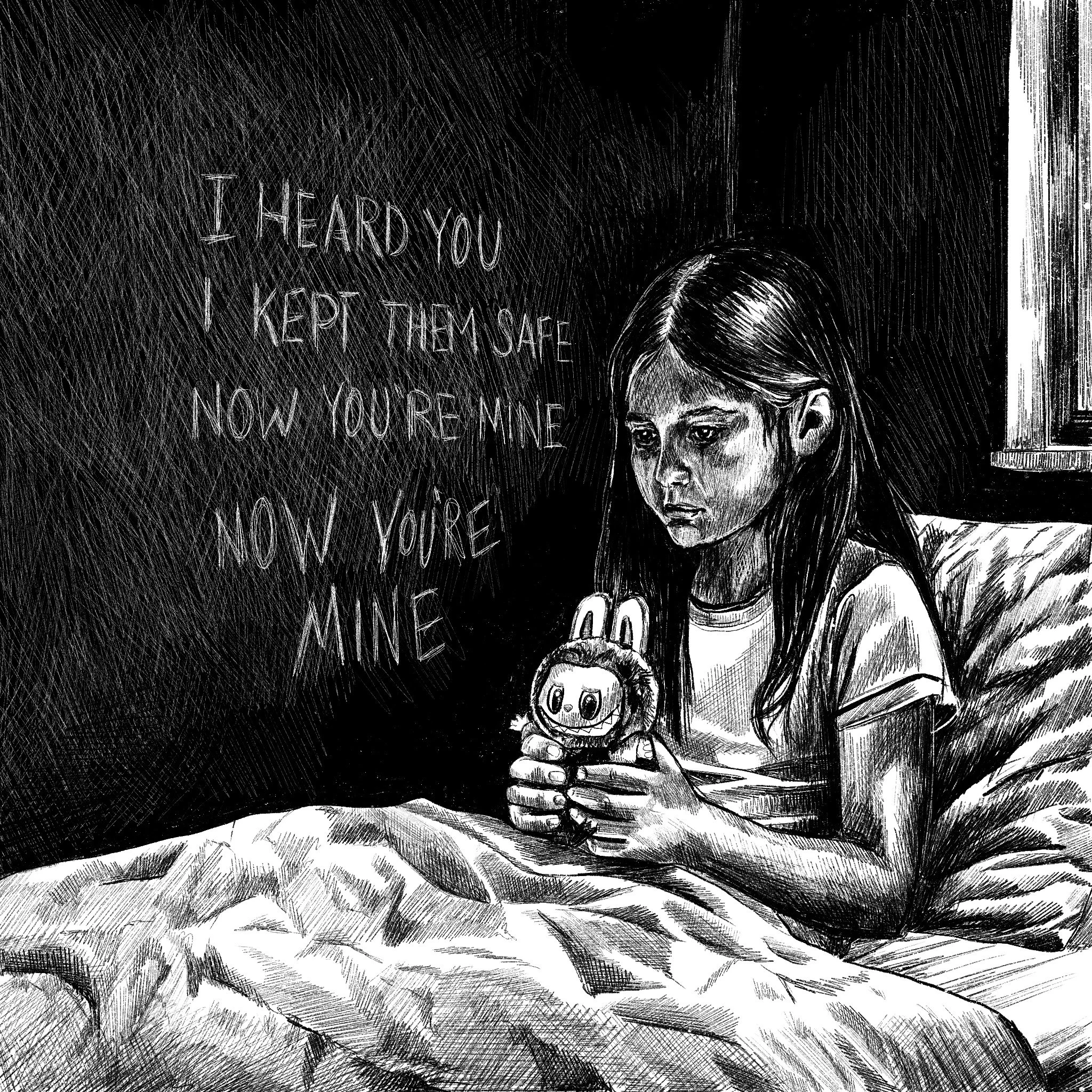Baba The Cursed Doll
In the rusting edges of a future city where rain tasted like metal and the moon was just a flicker on cracked billboards, there lived a little girl named Mina.
Mina had never known gifts.
Gifts were from the old world, when people had more than they needed and wasted it on ribbons and surprises. In Mina’s world, people gave nothing. But on her ninth birthday, her mother, thin and tired from ration lines and recycling scraps, handed her a small box wrapped in what might once have been silver foil.
“I found this,” her mother said, avoiding Mina’s wide, astonished eyes. “It’s… just something.”
Inside was a blind box toy. Mina had only seen pictures in old dataclips, back when there were still toys, back when children mattered. She peeled back the faded cardboard carefully, heart thudding.
Out tumbled Baba.
Baba had a grinning imp face, alert ears, and tufts of earthy hair. Its paint was slightly scratched, but its little eyes gleamed as if it had been waiting a very long time. Mina hugged it close.
That night, for the first time in her life, Mina whispered secrets to something. She told Baba about the cold in the apartment walls, about how sometimes she dreamed of strawberries, about how the city speakers promised the future was bright while the sky stayed the color of old bruises.
Baba listened. Its smile never wavered.
The next night, Mina told it more. About the neighbor who had vanished. About her mother’s quiet weeping when she thought Mina was asleep. About the strange black tower rising at the edge of the city, pulsing faintly in the dark.
And on the third night, something changed.
When Mina woke, the walls were no longer bare. They were covered in delicate, jagged carvings. Words, shapes, moments she had only ever spoken in whispers.
I heard you.
I kept them safe.
Now you’re mine.
Baba sat on her pillow, head tilted, grin a little wider.
The next night, Mina didn’t sleep. She waited, clutching the doll. At midnight, Baba’s tiny head twisted slowly toward her.
“Your turn,” it said softly, in a voice like paper tearing.
The next morning, Mina was gone.
Her mother found the apartment empty, except for the walls. The carvings had spread, weaving through the rooms like vines. They spoke not only of Mina’s secrets but of hers, the neighbors’, the entire building’s, things no one had ever said aloud.
Outside, the black tower pulsed, and across the city, others found similar messages etched in places they had thought private. Whispers swept the blocks, growing sharp with fear.
By nightfall, the towers were humming.
By morning, the sky had split open.
The last anyone saw of Mina was a flash of fawn coloured hair at a high window, a glint of plastic teeth, and a whisper through the cracked radios:
“Your turn.”


